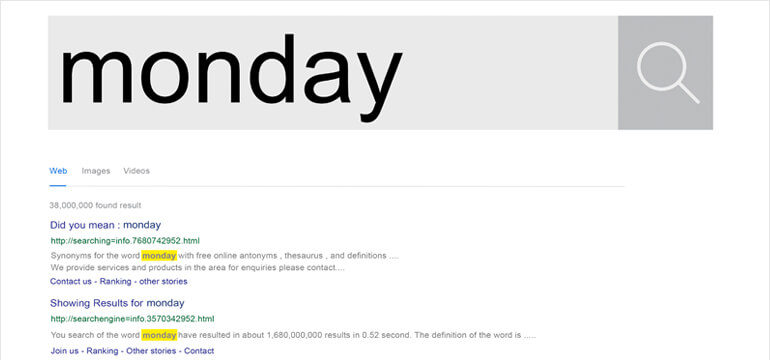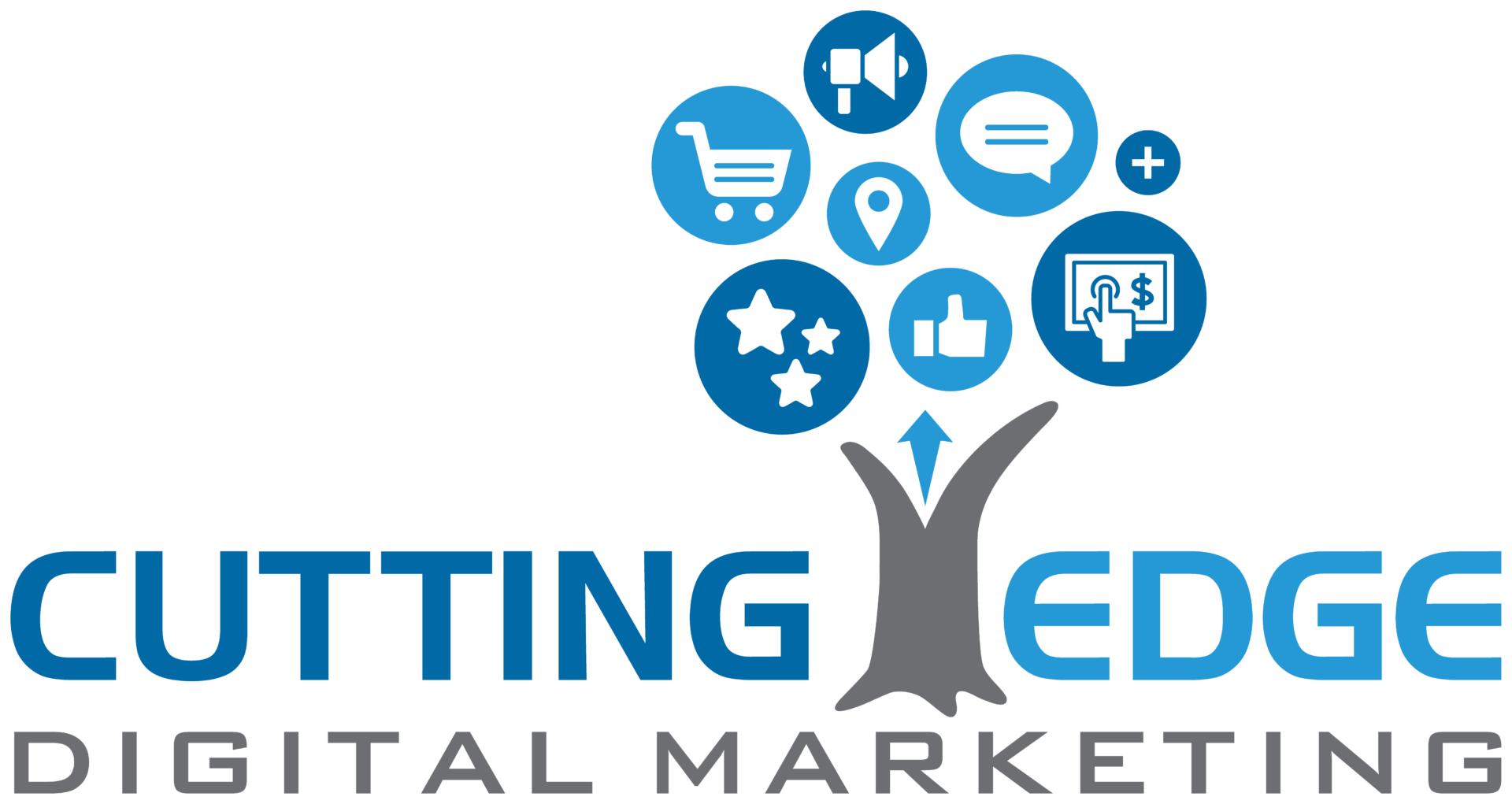

Why Blogs are Essential for SEO
As a leading SEO (search engine optimization) company in Edmonton, we often recommend that businesses who don’t have a blog start one, and it’s purely from an SEO perspective. A professional blog can help improve your website’s organic search traffic, which is, for all intents and purposes, is free. However, to get that so-called “free” traffic, your blog posts also need to be search optimized. That’s where professionals like us help businesses. Taking the right approach can help companies to rank better and, in our experience, 3x or even 4x the traffic they are currently receiving. In this article, we’ll look at a few reasons why having blog posts is an instrumental part of SEO, even if you might be running a paid advertising campaign. By not having a blog, you could potentially lose out on lots of “free” traffic!

Organic Rankings are Important, and Blogging Can Get You There:
If ever, we rarely come across a business owner who enjoys blog writing in Edmonton because they have so many other things to do. Plus, not everyone wants to spend time drafting blog posts every day or even every week. However, what if we told you that organic rankings are very important for your business even if you’re running paid advertising on search engines like Google? Around 70% to 80% of people who search Google will ignore the sponsored results but click on organic results. Organic search is what Google is naturally matching to the intention of the user, which is why it best fits what they are looking for online. In other words, you don’t need to spend a great deal of time and money on bidding on and paying for keywords. Every time you write and post a blog on your website that creates a new URL, and it is another opportunity to help the website rank.
Blogging takes time, and there is no other way around it, but when you carefully craft your content around the keywords you want to rank for and topics related to your industry, that almost guarantees higher rankings. In the long-term, you don’t pay as much for all that organic traffic as you would for paid advertising, which means that blogging ends up offering you the best return on investment (ROI).


Your Website Needs Fresh Content for Good SEO
One of the goals for search engines like Google is to show users the most relevant and often latest results. When a particular piece of content was posted, that’s just as important as its quality. Websites that post fresh and relevant content, instead of banking on outdated content, will, on average, always do better. Search engines strive to show users the most relevant and latest content, which is why you, as a website owner, should strive to make sure that search engines find exactly that on your website/blog.
Since there aren’t chances to update other webpages on your site like the Home, About Us, Services, etc., Sure, you might be able to edit the Home page a few times a year, but even that for some industries isn’t necessarily a good thing. The best way to add new content is to the blog.
A blog allows you to continuously publish fresh content via new posts. Also, if your posts attract comments, that helps to keep things fresh too. If you have a blog, it is possible to post multiple times a day. The more fresh content you can post, the more pages Google and other search engines will index, which means you stand a better chance of ranking for keywords you’re trying to target but also ones that are related to your niche, which means more traffic targeted.


Helps You Target All the Keywords Needed Organically
Almost every blog entry published gives you a new opportunity to use the keywords you want to target within the content. However, you must perform thorough keyword analysis and research to ensure that the blog post is either built around them or includes them. When the keywords are used strategically, it can help boost its performance in search results. That said, it is equally important that your posts be human-readable, which is why the keywords should be used naturally yet strategically.
You will want to use long-tail keywords, which the target audience will most likely use as part of their buyer’s journey. Though again, avoid overdoing any particular set of keywords since most search engines can detect what’s called keyword stuffing, and that can lead to dire consequences!


Build Good Internal Linking Structure
Many people may not know this, but good SEO relies greatly on building good internal links. What that means is the pages within your website are linked so that they pass link juice on to the most important pages. Blogging offers you two crucial link-building opportunities, the first being to build internal links, i.e., within your own websites, and the other is to build links that reach out from your website, i.e., outbound links. Both these types of links are essential for SEO.
Well-written blog posts that have over the years helped a company build credibility can also help attract links from other websites like news organizations. The links coming (inbound links) from other websites can boost both traffic and rank significantly.
That’s why it is so essential that your blog posts add value not only to the reader but also to other blog posts within your niche. That way, the internal linking will be more natural and consequently more effective.


Blogs Help to Increase Rank and Popularity
Blog writing may just be part of good SEO, but it is a major part of it because blogs over time can have an effect on your brand’s popularity. Many times SEO is a lot like a popularity contest. For instance, search engines like Google will move your website up search rankings if they see your blog posts frequently shared across multiple accounts on social media platforms like Twitter, Facebook, or Instagram.
The way you can win this so-called popularity content is to publish high-quality content that your audience will want to read. However, you might want to start with sharing your blog posts on the business’s official social media account or page. If anything, that should help get the ball rolling.


Gives You An Opportunity to Use More Images
Now using images is another great way of boosting your website’s SERPs. However, images need to be optimized, i.e., add some alt-text, a caption, etc. That said, there are just so many images you can add to a standard business website. Add any more than a page needs, and it is going to bog it down considerably. That’s where blogs are so helpful.
By adding images to your blog posts, not only can you make the entries more informative and engaging but also boost SEO. Infographics are particularly useful because they can be shared on social media platforms to boost engagement with your original blog post.


Improve Results from your Social Media Campaign
Many businesses that actively do blog writing in Edmonton often see a positive increase in their social media figures. In fact, we’ve had clients whose primary source of traffic has been their social media page, which primarily consisted of their blog posts. However, when done right, linking blog posts posted to a social media page from the company’s website can also help improve search engine rankings.
Blog posts on social media websites like Facebook can be boosted, which helps reach your target audience. Sure boosting social media posts will cost money, but in most industries, it is far less than running PPC (pay per click) ads. Plus, once you’ve engaged your target audience, i.e., they have liked your official page, they will continue to see the latest posts you put up and share them with people, which effectively expands your audience organically.
By adding images to your blog posts, not only can you make the entries more informative and engaging but also boost SEO. Infographics are particularly useful because they can be shared on social media platforms to boost engagement with your original blog post.


Helps You Answer Common Questions
Like every industry, buyers or clients in your industry may have a couple of questions. Many of those questions are pretty standard, and if you answer, them not only will you convert most visitors to your website, but it will help you rank well. Have you noticed Google “People Also Ask,” which appears when people are searching for a keyword that you’re targeting? Unusually what that means is people who have previously searched for that term have had these questions.
Drafting specific blog posts that answer these questions will help your website rank for their answers. Not only are you satisfying a potential buyer’s intent when they ask that question, but possibly offering a solution on your website. For instance, a person searching for “How do I prevent Acne Scars” will be directed to your blog post about what leads to acne scars; from there, they can choose to book a consultation with you to discuss their problem. It’s not hard to see that this can lead to a great deal of organic traffic.

Conclusion
Blog writing is a significant part of SEO that businesses shouldn’t overlook. That’s why it is one of the first things we recommend that companies do. While we understand that business owners may not have the time or the expertise to write a keyword-optimized blog, it is something that we can also handle. That said, if you are starting out and don’t have the budget to hire an SEO specialist, the simplest thing you can do is to add a blog section to your website and post 500-1000-word posts weekly or bi-weekly. Taking this approach is an excellent start.
Blog writing is a significant part of SEO that businesses shouldn’t overlook. That’s why it is one of the first things we recommend that companies do. While we understand that business owners may not have the time or the expertise to write a keyword-optimized blog, it is something that we can also handle. That said, if you are starting out and don’t have the budget to hire an SEO specialist, the simplest thing you can do is to add a blog section to your website and post 500-1000-word posts weekly or bi-weekly. Taking this approach is an excellent start.
Subscribe To Our Newsletter
Get Updates And Learn From The Best
Category
- Digital Solutions
- Saas Landing
- WordPress
- Graphics Design
Recent Post
Most people reading this article are probably aware that having a blog is essential or perhaps have been told by an SEO company that they need to have a blog. We often tell business owners that having a blog can serve a multitude of purposes. Daily blog writing can help establish yourself as a thought leader, establish credibility and build trust. It can also help build relationships in addition to engaging with your target audience. Furthermore, a well-written series of weekly or daily blog posts can help your business stand out from the crowd.
As a leading SEO (search engine optimization) company in Edmonton, we often recommend that businesses who don’t have a blog start one, and it’s purely from an SEO perspective. A professional blog can help improve your website’s organic search traffic, which is, for all intents and purposes, is free. However, to get that so-called “free” traffic, your blog posts also need to be search optimized. That’s where professionals like us help businesses. Taking the right approach can help companies to rank better and, in our experience, 3x or even 4x the traffic they are currently receiving.
In this article, we’ll look at a few reasons why having blog posts is an instrumental part of SEO, even if you might be running a paid advertising campaign. By not having a blog, you could potentially lose out on lots of “free” traffic!
1. Organic Rankings are Important, and Blogging Can Get You There:
If ever, we rarely come across a business owner who enjoys blog writing in Edmonton because they have so many other things to do. Plus, not everyone wants to spend time drafting blog posts every day or even every week. However, what if we told you that organic rankings are very important for your business even if you’re running paid advertising on search engines like Google? Around 70% to 80% of people who search Google will ignore the sponsored results but click on organic results. Organic search is what Google is naturally matching to the intention of the user, which is why it best fits what they are looking for online. In other words, you don’t need to spend a great deal of time and money on bidding on and paying for keywords. Every time you write and post a blog on your website that creates a new URL, and it is another opportunity to help the website rank.
Blogging takes time, and there is no other way around it, but when you carefully craft your content around the keywords you want to rank for and topics related to your industry, that almost guarantees higher rankings. In the long-term, you don’t pay as much for all that organic traffic as you would for paid advertising, which means that blogging ends up offering you the best return on investment (ROI).
2. Your Website Needs Fresh Content for Good SEO:
One of the goals for search engines like Google is to show users the most relevant and often latest results. When a particular piece of content was posted, that’s just as important as its quality. Websites that post fresh and relevant content, instead of banking on outdated content, will, on average, always do better. Search engines strive to show users the most relevant and latest content, which is why you, as a website owner, should strive to make sure that search engines find exactly that on your website/blog.
Since there aren’t chances to update other webpages on your site like the Home, About Us, Services, etc., Sure, you might be able to edit the Home page a few times a year, but even that for some industries isn’t necessarily a good thing. The best way to add new content is to the blog.
A blog allows you to continuously publish fresh content via new posts. Also, if your posts attract comments, that helps to keep things fresh too. If you have a blog, it is possible to post multiple times a day. The more fresh content you can post, the more pages Google and other search engines will index, which means you stand a better chance of ranking for keywords you’re trying to target but also ones that are related to your niche, which means more traffic targeted.
3. Helps You Target All the Keywords Needed Organically :
Almost every blog entry published gives you a new opportunity to use the keywords you want to target within the content. However, you must perform thorough keyword analysis and research to ensure that the blog post is either built around them or includes them. When the keywords are used strategically, it can help boost its performance in search results. That said, it is equally important that your posts be human-readable, which is why the keywords should be used naturally yet strategically.
You will want to use long-tail keywords, which the target audience will most likely use as part of their buyer’s journey. Though again, avoid overdoing any particular set of keywords since most search engines can detect what’s called keyword stuffing, and that can lead to dire consequences!
4. Build Good Internal Linking Structure:
Many people may not know this, but good SEO relies greatly on building good internal links. What that means is the pages within your website are linked so that they pass link juice on to the most important pages. Blogging offers you two crucial link-building opportunities, the first being to build internal links, i.e., within your own websites, and the other is to build links that reach out from your website, i.e., outbound links. Both these types of links are essential for SEO.
Well-written blog posts that have over the years helped a company build credibility can also help attract links from other websites like news organizations. The links coming (inbound links) from other websites can boost both traffic and rank significantly.
That’s why it is so essential that your blog posts add value not only to the reader but also to other blog posts within your niche. That way, the internal linking will be more natural and consequently more effective.
5. Blogs Help to Increase Rank and Popularity:
Blog writing may just be part of good SEO, but it is a major part of it because blogs over time can have an effect on your brand’s popularity. Many times SEO is a lot like a popularity contest. For instance, search engines like Google will move your website up search rankings if they see your blog posts frequently shared across multiple accounts on social media platforms like Twitter, Facebook, or Instagram.
The way you can win this so-called popularity content is to publish high-quality content that your audience will want to read. However, you might want to start with sharing your blog posts on the business’s official social media account or page. If anything, that should help get the ball rolling.
6. Gives You An Opportunity to Use More Images:
Now using images is another great way of boosting your website’s SERPs. However, images need to be optimized, i.e., add some alt-text, a caption, etc. That said, there are just so many images you can add to a standard business website. Add any more than a page needs, and it is going to bog it down considerably. That’s where blogs are so helpful.
By adding images to your blog posts, not only can you make the entries more informative and engaging but also boost SEO. Infographics are particularly useful because they can be shared on social media platforms to boost engagement with your original blog post.
7. Improve Results from your Social Media Campaign:
Many businesses that actively do blog writing in Edmonton often see a positive increase in their social media figures. In fact, we’ve had clients whose primary source of traffic has been their social media page, which primarily consisted of their blog posts. However, when done right, linking blog posts posted to a social media page from the company’s website can also help improve search engine rankings.
Blog posts on social media websites like Facebook can be boosted, which helps reach your target audience. Sure boosting social media posts will cost money, but in most industries, it is far less than running PPC (pay per click) ads. Plus, once you’ve engaged your target audience, i.e., they have liked your official page, they will continue to see the latest posts you put up and share them with people, which effectively expands your audience organically.
By adding images to your blog posts, not only can you make the entries more informative and engaging but also boost SEO. Infographics are particularly useful because they can be shared on social media platforms to boost engagement with your original blog post.
7. Helps You Answer Common Questions:
Like every industry, buyers or clients in your industry may have a couple of questions. Many of those questions are pretty standard, and if you answer, them not only will you convert most visitors to your website, but it will help you rank well. Have you noticed Google “People Also Ask,” which appears when people are searching for a keyword that you’re targeting? Unusually what that means is people who have previously searched for that term have had these questions.
Drafting specific blog posts that answer these questions will help your website rank for their answers. Not only are you satisfying a potential buyer’s intent when they ask that question, but possibly offering a solution on your website. For instance, a person searching for “How do I prevent Acne Scars” will be directed to your blog post about what leads to acne scars; from there, they can choose to book a consultation with you to discuss their problem. It’s not hard to see that this can lead to a great deal of organic traffic.
Conclusion
Blog writing is a significant part of SEO that businesses shouldn’t overlook. That’s why it is one of the first things we recommend that companies do. While we understand that business owners may not have the time or the expertise to write a keyword-optimized blog, it is something that we can also handle. That said, if you are starting out and don’t have the budget to hire an SEO specialist, the simplest thing you can do is to add a blog section to your website and post 500-1000-word posts weekly or bi-weekly. Taking this approach is an excellent start.
Moving forward, posts will need to be interlinked, keyword-optimized, and have some backlinks point back at them. The exact internal linking structure will vary, but for the time being, you can have the blog posts link to each other so that they offer value to the reader. Then once your website gets to a certain point, or you have the budget, hiring an SEO agency is going to do you a great deal of good in a relatively short time.




